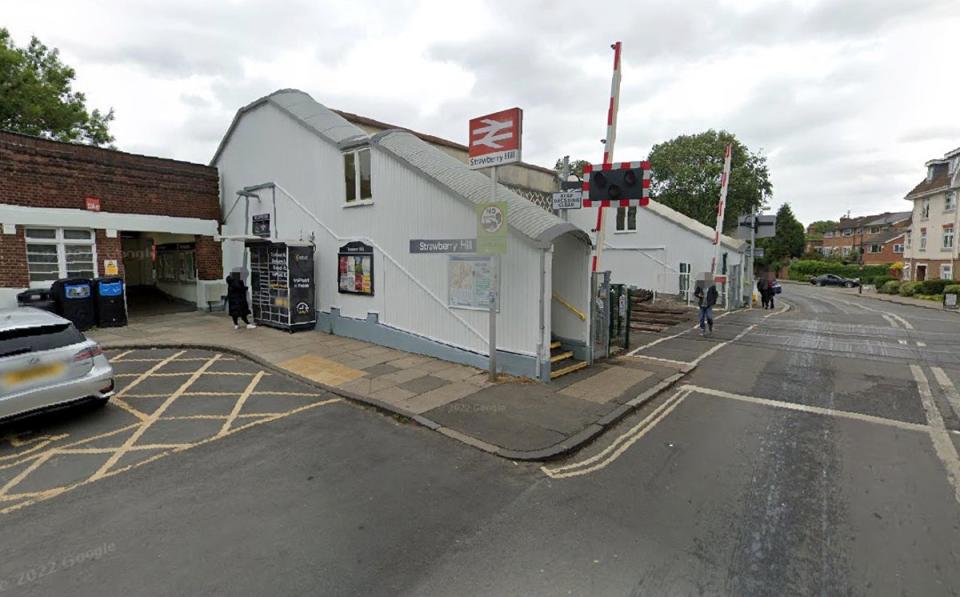May eighth 2021
HAMMERSMITH BRIDGE has been closed to all visitors for the previous 9 months. The tremendous Victorian construction in west London is cracking and will collapse at any second; the borough that owns the bridge can’t afford to repair it. In a rational world, the federal government would shell out for repairs, says Tony Travers of the London School of Economics. But Hammersmith Bridge occurs to join one rich a part of London with one other half, and the federal government is loth to be seen spending cash for his or her profit.
Listen to this story
Your browser doesn’t assist the
Enjoy extra audio and podcasts on iOS or Android.
From an ideal peak, London has fallen onerous previously yr. Covid-19 hit the capital first, killing individuals earlier than medical doctors understood the illness. Commuters and vacationers have vanished, hobbling town’s giant service economic system—no British area has suffered a sharper rise in unemployment. Yet the capital’s largest drawback is political. The authorities of London has badly fallen out with the nationwide authorities. That is already harming town; finally, your entire nation will undergo.
On May sixth, as The Economist went to press, London was going to the polls. Bookies had been providing odds on the re-election of Sadiq Khan, the Labour mayor, at 1/100—for those who put £100 on him and he received, you’ll make £1. Shaun Bailey, the Conservative candidate, ran a poor marketing campaign, and the federal government appeared to have deserted town to Labour. Mr Khan spent a lot time attacking not his opponents however his predecessor, now the prime minister, Boris Johnson.
His manifesto claimed that Mr Johnson leads “essentially the most anti-London authorities in current historical past”. The prime minister bashes the mayor at any time when potential; in early April he even criticised Mr Khan’s transport insurance policies throughout a press convention about covid-19. Mayors and prime ministers have tussled earlier than. But “the stress has by no means been fairly as seen or fairly as vocal,” says Jack Brown, who research town at King’s College London.
The row started quickly after the Brexit vote in 2016, when the newly elected Mr Khan tried to place himself as a champion of business-friendly internationalism. He argued that the then-prime minister, Theresa May, was “a catastrophe” for London as a result of she was neglecting infrastructure, impoverishing public providers and pursuing a tough Brexit that will hurt town.
That was a crude caricature of Mrs May, however a fairer evaluation of Mr Johnson. The present prime minister personally dislikes the mayor, who he believes is inexplicably fashionable, and has lengthy wished him minimize down to measurement. The covid-19 pandemic and a change in Britain’s political geography have given him the means and the inducement to do exactly that.
Covid-19 has scared Londoners off trains and buses, forcing Transport for London (TfL) to beg the Treasury for cash. The authorities has extracted a heavy worth for its assist. It has compelled the mayor to elevate the congestion cost paid by drivers coming into central London, insisted on fare will increase on public transport, and allowed itself to appoint two particular representatives to TfL’s board. Since the mayor has extra energy over transport than anything, this clips his wings. And it definitely seems as if that’s the authorities’s intention. Railway and bus corporations outdoors London got longer-term bail-outs, with fewer circumstances.
The different huge factor that the mayor controls is strategic planning. There, too, the federal government has crimped his energy. In March 2020 the housing secretary, Robert Jenrick, rejected the London Plan—a doc that units priorities for growth. Mr Khan was compelled to rewrite components of it. He had wished the London inexperienced belt to be off limits to new housing, for instance. Building there’ll now be allowed in “very particular circumstances”.
The modifications to the London Plan will not be massively consequential. But Mr Jenrick’s argument that he had to intervene as a result of London’s report on homebuilding underneath Mr Khan was “deeply disappointing” is doubtful. In the 2019-20 fiscal yr London added 42,000 internet dwelling items—greater than some other English area and the very best determine because the flip of the century. The level of the intervention appears to have been merely to show that the federal government might overrule the mayor and maintain up his plan for a yr.
In March the federal government introduced that it will introduce a “first previous the publish” voting system in London and different metropolises for future elections. At current Londoners can forged two votes for mayor. If a voter’s first desire is just not among the many front-runners, his or her second-preference vote is counted. Moving from that “supplementary vote” system to first-past-the-post is unlikely to produce totally different winners, says Patrick Dunleavy, a political scientist who helped create London’s voting system twenty years in the past. But it can scale back mayors’ private mandates and their legitimacy. Mr Khan is normally stated to have received 57% of the vote on the final election in 2016, not the 44% he received earlier than second-preference votes had been tallied.
That change will endure even within the unlikely occasion that Mr Khan fails to win a second time period. So will one other one. The authorities used to assess bids for big infrastructure initiatives largely through the use of benefit-cost ratios. That suited the capital: as a result of it’s so productive, coping with a journey bottleneck there usually looks like wonderful worth for cash. But final yr the Treasury guidelines modified. The authorities will now conduct “place-based” analyses. It may, for instance, take into account that boosting incomes in a poor space would make a much bigger distinction to individuals’s lives than boosting incomes in a richer space. The modifications will make it simpler to justify funnelling cash to components of Britain which might be poorer than London—which is to say, nearly all over the place.
Not surprisingly, the present mayor has accused the federal government of doing London down, and the federal government has not precisely denied it. It is extra enthusiastic about courting voters within the former industrial heartlands of the north and Midlands, a few of whom resent London’s energy. “It performs nicely to Boris’s base to be seen to be powerful on London, and it performs nicely with Sadiq’s base to be seen to be standing up to the federal government,” says a former London Tory MP.
But the fracas is in no way good for London. When the mayor blames the central authorities for the capital’s issues, and the federal government retorts that London is badly run, the general impact is to tarnish town within the eyes of potential traders and immigrants. “Everyone can have coverage variations, however being engaged in a tribal warfare is just not useful,” says Richard Burge, head of the London Chamber of Commerce and Industry, a foyer group.
What harms London is probably going to hurt your entire nation in the long term. The capital funds the remainder of Britain: in 2018-19 its internet fiscal surplus amounted to £4,350 per individual, excess of some other area. And along with Manchester and Scotland, London is without doubt one of the engines of devolution. Responsibilities and powers are handed out to them first, then handed to different areas. If Westminster grabs energy again from London, the engine is thrown into reverse.
“Cities can flip,” says Rory Stewart, a former Tory minister who ran for mayor as an impartial however dropped out of the race a yr in the past. London has been badly broken by covid-19; components of it, such because the West End, may not get well for years. And if the capital struggles, Britain will lose one in every of its remaining claims to world greatness. Mr Stewart says that many individuals would snort at the concept Britain has one of many world’s best armed forces. But Britain can moderately declare to have one of many world’s best cities.■
This article appeared within the Britain part of the print version underneath the headline “Why London’s bridge is falling down”




